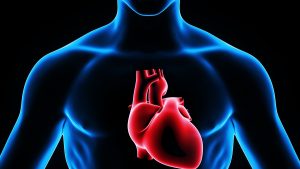Sex usually causes positive feelings, but how is it that sex stimulates your brain? Recently this publication reviewed exactly what is going on. The reason both sexes seem to seek out sex is the fact that it is sex that stimulates the brain a certain way, which is pleasing to both partners. Due to the stimulation the brain will release hormones that make us feel good. Following sex there is post-coital afterglow for a period of time, which I have addressed under this link before. Here I am reviewing what physical stimulation of the brain takes place during sex. Next I will touch on the hormonal changes that happen during and after sex.
Diagnostic tests that show that sex stimulates your brain
Researchers performed 2005 positron emission tomography (PET scan) studies during sex at the University of Groningen, the Netherlands. They studied males males while they were having sex. The question was what part of the brain would be receiving stimulation. Another question was, what part of the brain was resting during intercourse? They found that the right hemisphere and particularly one area, the right posterior insula received stimulation, when the penis was stimulated. This area allows the man to feel relaxed and it reduces pain perception. The secondary somatosensory cortex also showed stimulation on PET scans. The stimulation of the secondary somatosensory cortex is what carries him to the height of his arousal during intercourse. The hypothalamus, which also received stimulatioh with the initiation of sex, was very quiet during the active part of lovemaking. The thalamus and right amygdala were also quiet during that phase on PET scans.
More on feelings and losing oneself during the height of sex
The same group from the Netherlands did a 2003 study using PET scans to find out what happens during his ejaculation. Male subjects had sexual stimulation (penile stimulation) by their female partners. At the time of his ejaculation the PET scan showed increased brain activity in the ventral tegmental area (VTA) and the cerebellum. The frontal brain was remarkably quiet. Other authors point out that there are profound hormone releases during lovemaking. The release of neurotransmitters like noradrenaline, oxytocin and prolactin is taking place during orgasm. Other hormones like dopamine, opioids and serotonin join the hormonal symphony of lovemaking. This leads to detachedness at the height of the orgasm, to emotional closeness and pair bonding toward the end of lovemaking. The authors of the 2003 Netherlands study concluded:
“Our results correspond with reports of cerebellar activation during heroin rush, sexual arousal, listening to pleasurable music, and monetary reward.”
Female orgasm and brain studies showing that sex stimulates your brain
It is only fair that research also studied females, similarly to the male studies. Functional MRI scans were part of a 2017 study from Newark, NJ.
It showed a much broader stimulation of brains in females than in males. Female orgasm includes stimulation of the prefrontal cortex, the orbitofrontal cortex, the insula, the cingulate gyrus, and the cerebellum. These areas take part in the processing of emotions and of pain. There is also some metabolic processing and decision-making. With the male ejaculation study discussed above we had seen that there was no activity in the frontal brain of the male. At this stage of his sexual arousal there is no place for decision-making for the man. Women, however, are still able to think while having an orgasm. Other studies have shown that the rhythmic sexual stimulation during sex can get women into an altered state of consciousness that feels like a trance.
Hormonal activity during and after sex documenting that sex stimulates your brain
We learned already about the profound hormone releases during the height of his ejaculation and her orgasm (noradrenaline, oxytocin and prolactin). But other hormones were also part of it: dopamine, opioids and serotonin. There are two hormones that are particularly important: endorphins and oxytocin. Endorphins are part of the natural endorphins that the brain makes. They help us to feel good and they minimize pain. Their production takes place in the hypothalamus, one of the main hormone producing glands of the brain. The hypothalamus also produces the corticotropin-releasing hormone (CRH), which releases ACTH in the pituitary gland. This and cortisol are the stress hormones that make us tense. With the release of endorphins during sex, the stress reaction becomes less. More sex means less stress.
Oxytocin, the cuddling hormone
Oxytocin from the posterior pituitary gland is the cuddling hormone. It is part of the symphony of hormones that show a release during sex. Oxytocin makes you feel close to your partner, but also very relaxed. It may be responsible for the afterglow that I mentioned in the beginning of my review that can last for up to 2 days after sex.
When sex is painful
Sex can be a bad experience, particularly for women. Many women have experienced sexual abuse in the past, and when they grow up to mature women, the past bad memories often linger on. This is called postcoital dysphoria (PCD). A 2011 Australian/US study has studied this. 32.9% of the students of that study reported ever having experienced this. There were also cases of childhood sexual abuse that were more severe. The authors also found that sexual dysfunction was worse when co-existing anxiety or depression disorders were present.
Better sleep after sex
Prolactin, another brain hormone is released during sex as well. It is responsible for calming the frontal cortex down. This leads to better sleep, but in older men it also causes better cognitive functioning. Prolactin, released during sex is thought to improve memory and to improve cognitive impairment.
In women testosterone and oxytocin are released during sex. This can improve libido (testosterone) and makes you feel like cuddling.
Conclusion
Sex leads to a battery of hormones that the brain releases after ejaculation and/or orgasm. Both partners experience their own detachedness, which is due to a trance-like mental state where the partners experience each other intensely. The cuddling hormone oxytocin encourages bonding and contributes to a feeling of an intense closeness to each other. Endorphins release stress and amplify the emotional high. Brain studies on copulating couples have shown different stimulation patterns of parts of the brain in women and in men.
Differences in how men and women are wired
Men cannot think at the height of lovemaking because their frontal brain is completely blocked. Women, however, are able to continue to experience all emotions and are able to think at the same time. Having said that, women can easily enter into a trance from the repetitive movements of lovemaking. Whatever it is that we experience during and after sex, it is due to the relationship we have with each other, the past experience, the present experience and the hormone symphony that occurs during all of this. Enjoy what’s going on!










